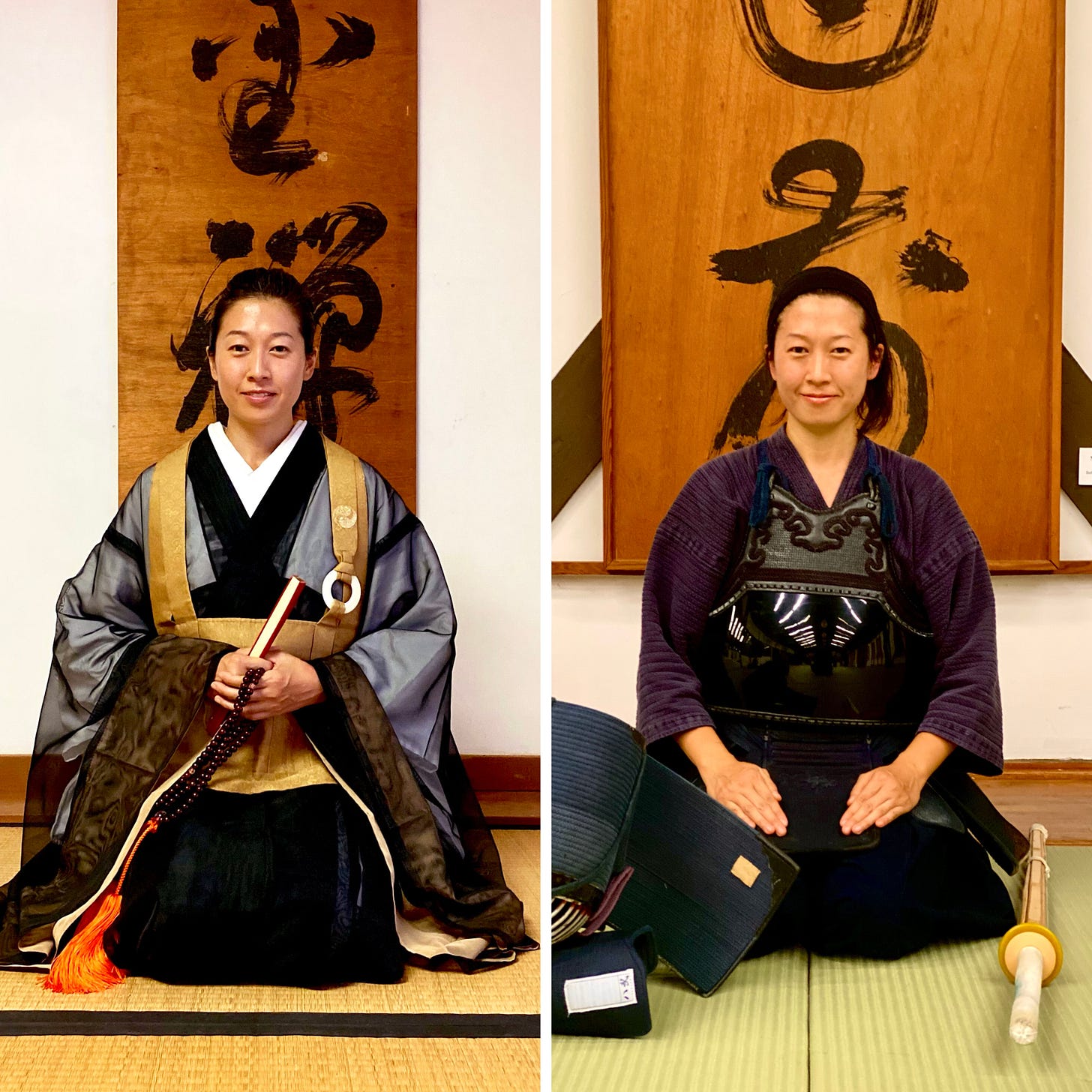Finding Our Fighting Spirit
Why having some fight in us is the most important strategy for getting through challenging times.
On January 21, 2021 I spoke to members of the US-Japan Council in a webinar entitled "Finding Mindful Solace During a Torrid Covid Storm". You can watch the video on my website here.

While preparing for the webinar, I was surprised to learn just how hard hit Japan has been by the COVID-19 pandemic—especially in terms of mental health. Following declines in suicide preceding the pandemic, suicide rates in Japan have now risen 18% since the beginning of 2020. In October alone, approximately 20% more people died of suicide than from the actual virus. The suicide rate increased 37% for women specifically between July and October, with women under 40 like me being particularly hard hit.
Learning this has made me reevaluate what was most important for me to address for a mixed Japanese and American audience. So, despite what may have been expected of me as a Zen priest, I did not focus on strategies for finding refuge or solace.
Instead, I talked about how important it is to fight.
At Chozen-ji, our approach to Zen training includes the martial arts, especially swordsmanship. For me, even just a few years of training in Kendo (The Way of the Sword) have proven invaluable in Zen and in life. I am better now at cutting through my habits, delusions, and fears in an instant. Whether I'm sitting in zazen or in a face to face encounter, cutting through my internal obstacles really feels the same as leaping forward in Kendo, my feet touching down at the same time that my bamboo sword smashes into my opponent's helmet and I yell with all my might, "面 (men)!"
I believe this is why Tokyo's riot police in post-War Japan were required to begin their police training with three years (paid, full time) in a Kendo, Judo, or Aikido dojo. The discipline, of course, must have been helpful. But as poverty and crime tore Japanese society apart after World War II, these officers needed to train vigorously in a controlled environment so they would not lose their fighting spirit when the stakes were real. To do so meant learning to conquer the chaos not out in the streets, but within themselves most of all.
Actual, physical training that imparts the feeling of a real fight is a foundational part of our training at Chozen-ji. But in the absence of that, even just the decision and determination to face one's challenges head on—like your life depends on it—is critical.
A year and a half ago, a young man came to Chozen-ji seeking help for his crippling anxiety. A few months before, he had had a panic attack while boarding a flight to California. He was on his way to join his girlfriend, who had traveled ahead of him, for a romantic anniversary weekend in Disneyland. However, after months of planning and anticipation, he was forced by his anxiety to deplane and ditch the trip entirely.
The first beginning zazen class, he couldn't even sit still for five minutes before becoming totally overwhelmed. At Chozen-ji, you're not allowed to move in zazen and just that prohibition made him crawl out of his skin. The second time, I devised a way to ease the pressure. I told him that, every few minutes, I would raise my hands and put my palms together in gassho. This was his signal that he could turn around and stretch his legs before turning back to meditate again. (The other students and I, however, would not move.)
The first time I held gassho, he sighed with relief, turned around, and stretched his legs. After a few seconds, he came back, recovered his posture and sat again. A second time, I held gassho. But this time, much to my surprise, he didn't move. I worried that perhaps he was so mired in anxious thoughts that he had missed the cue. A few minutes later, I held my hands up a third time. But he still didn't move.
Finally, after a full 45 minutes, I ended the sitting.
"What happened?" I asked.
"It was hard," he said, sweat still beading on his brow. "I think it was the hardest thing I ever did. But I felt bad he couldn't move," he said, motioning to the student sitting across from him.
"That was it?" I asked.
"Well, no," he replied. "I felt the anxiety. It was really bad. But I realized I had to fight."
As mass vaccinations begin around the world, this call to rouse your fighting spirit may feel too late to address life under the pandemic. But even in the absence of COVID, the one thing we can count on is that we will all face suffering of one form or another. With the looming threats of continuing political instability and climate crisis, the challenges we will face in the days to come are likely to be bigger than anything we faced before.
That's why, even now, spiritual training and cultivating our fighting spirit are so important. Indeed, it's a more direct pathway to peace and true freedom than seeking refuge and self care. Whether you have a Kendo dojo or not, and even if you see the light at the end of the COVID tunnel, that training can begin right now.
"When the battle is over," the Japanese saying goes, "the warrior tightens their helmet."


